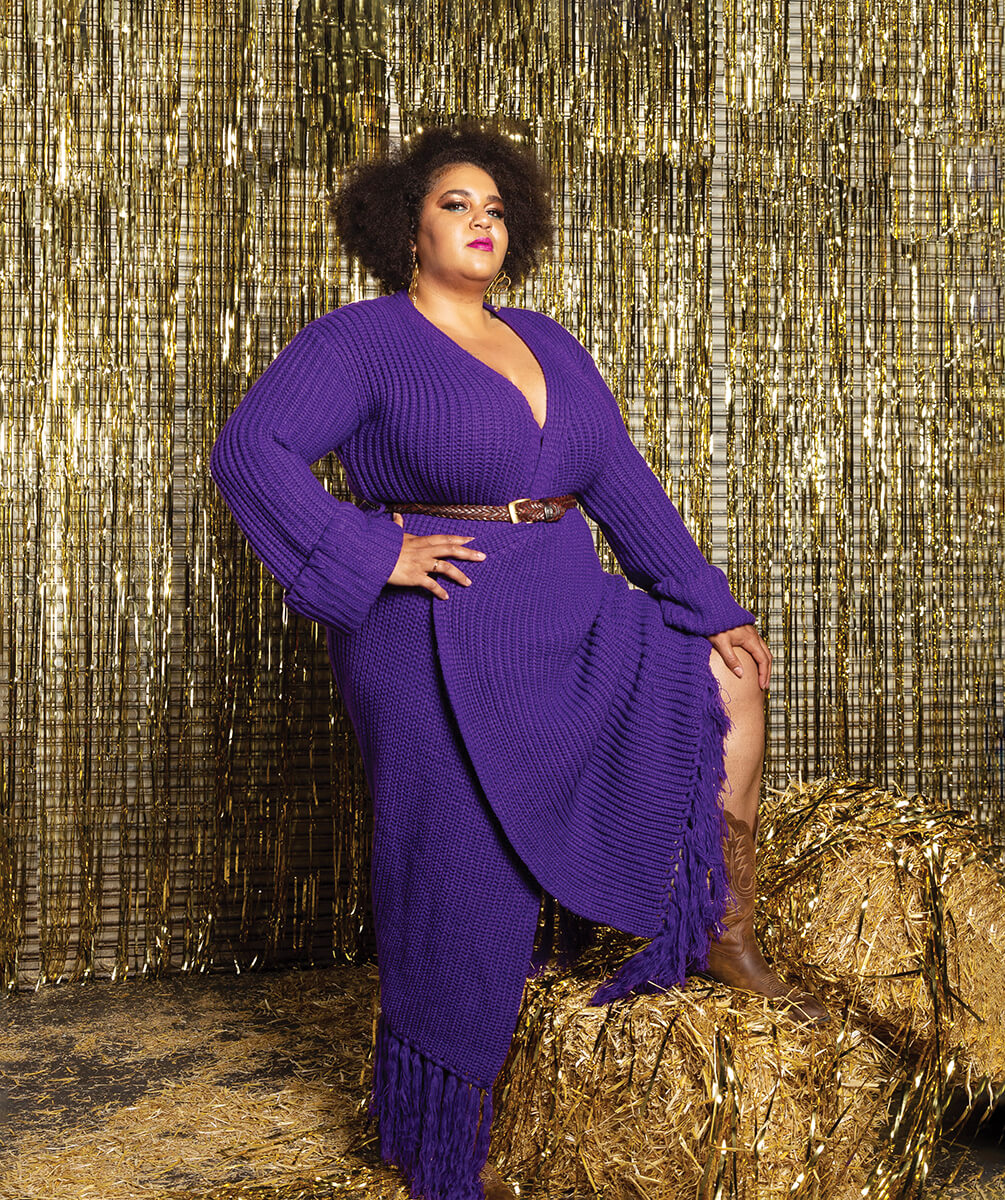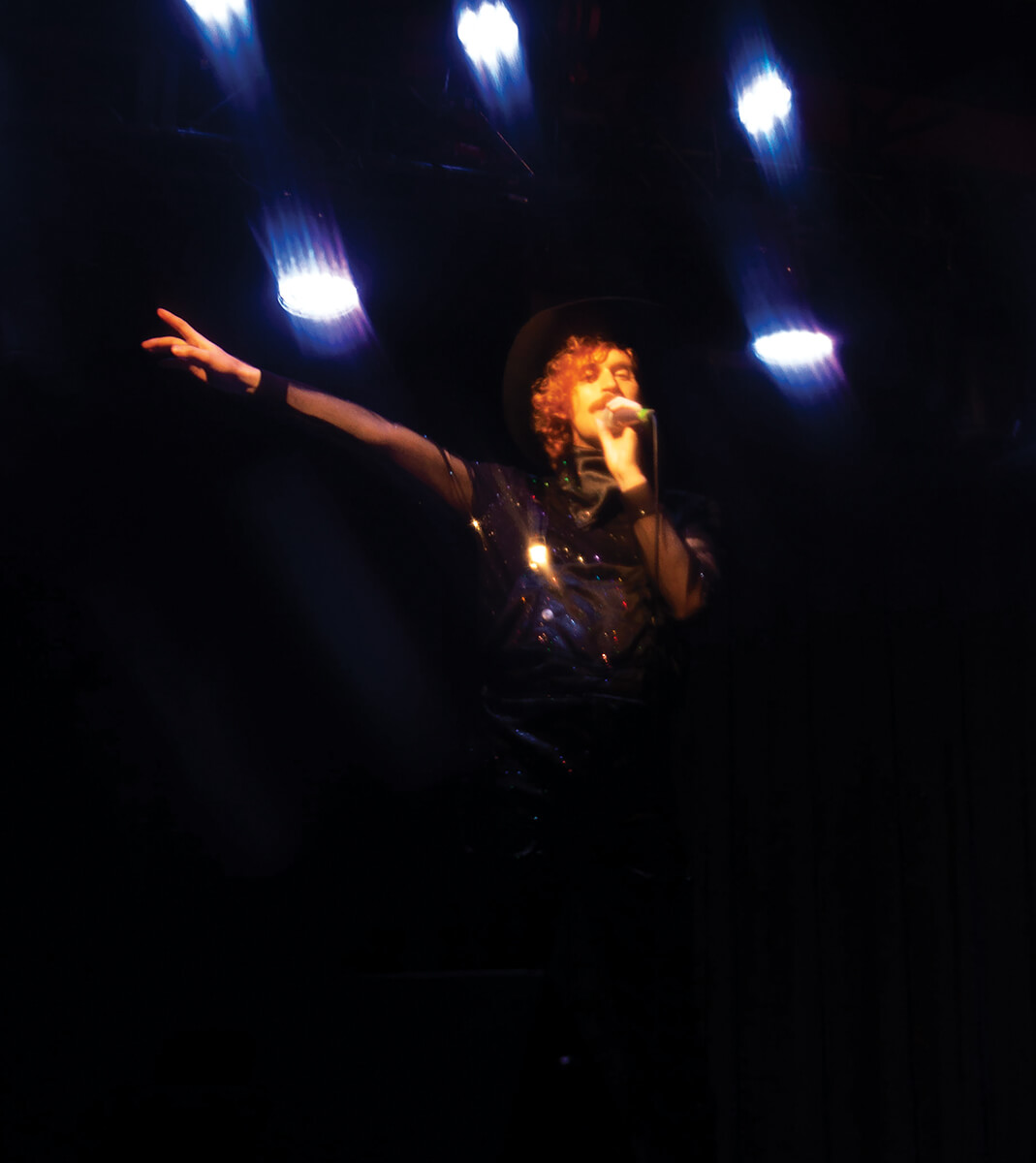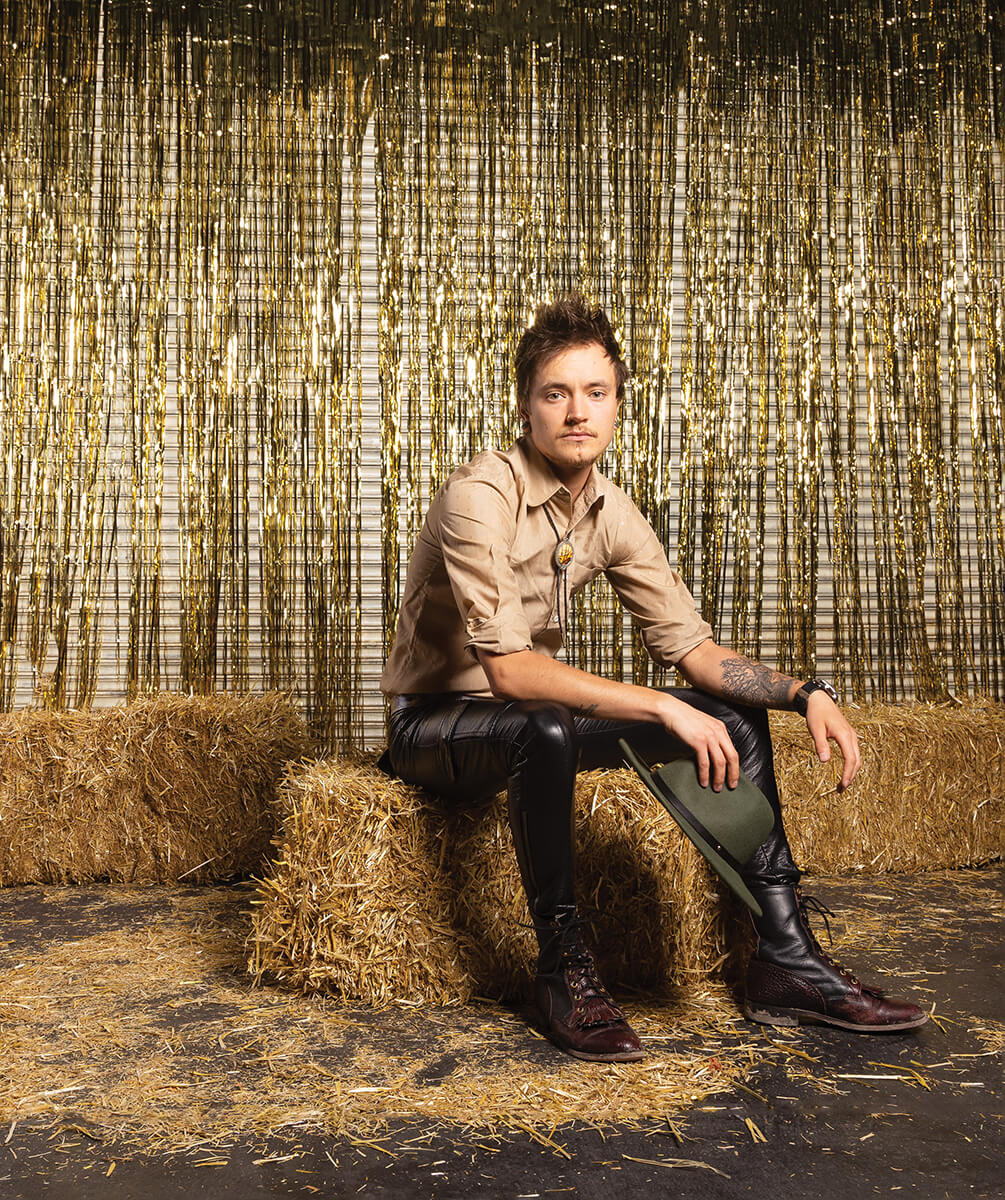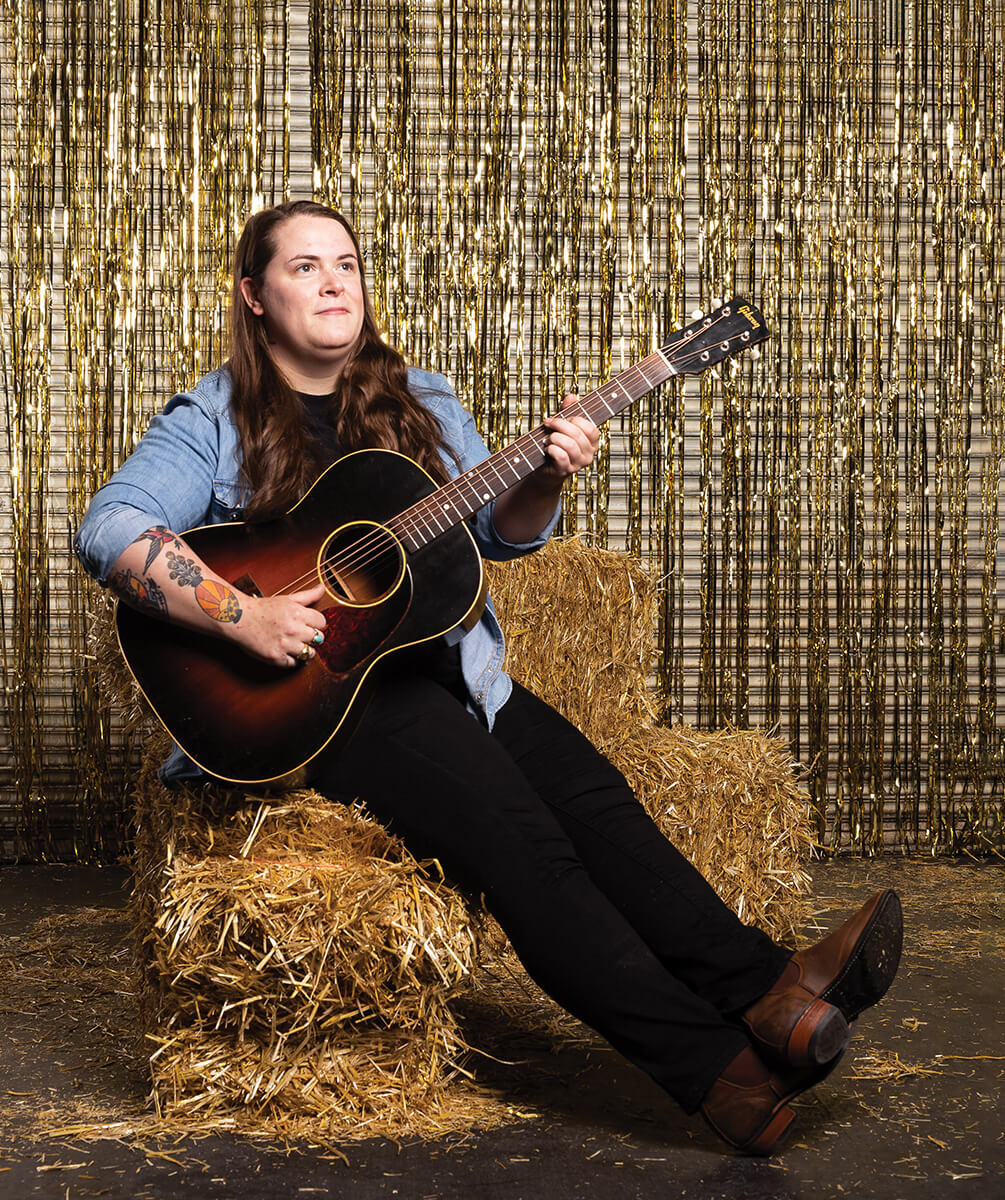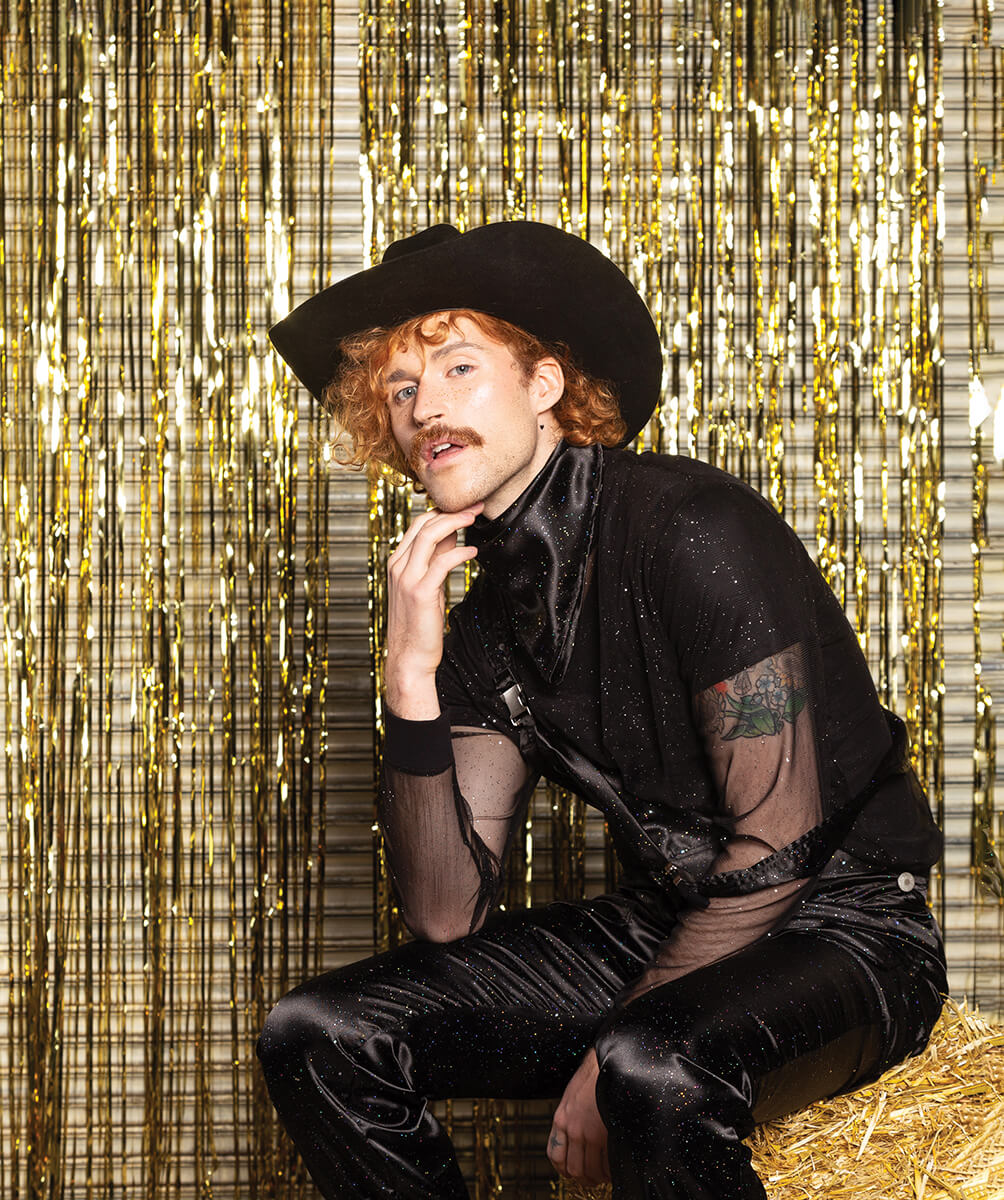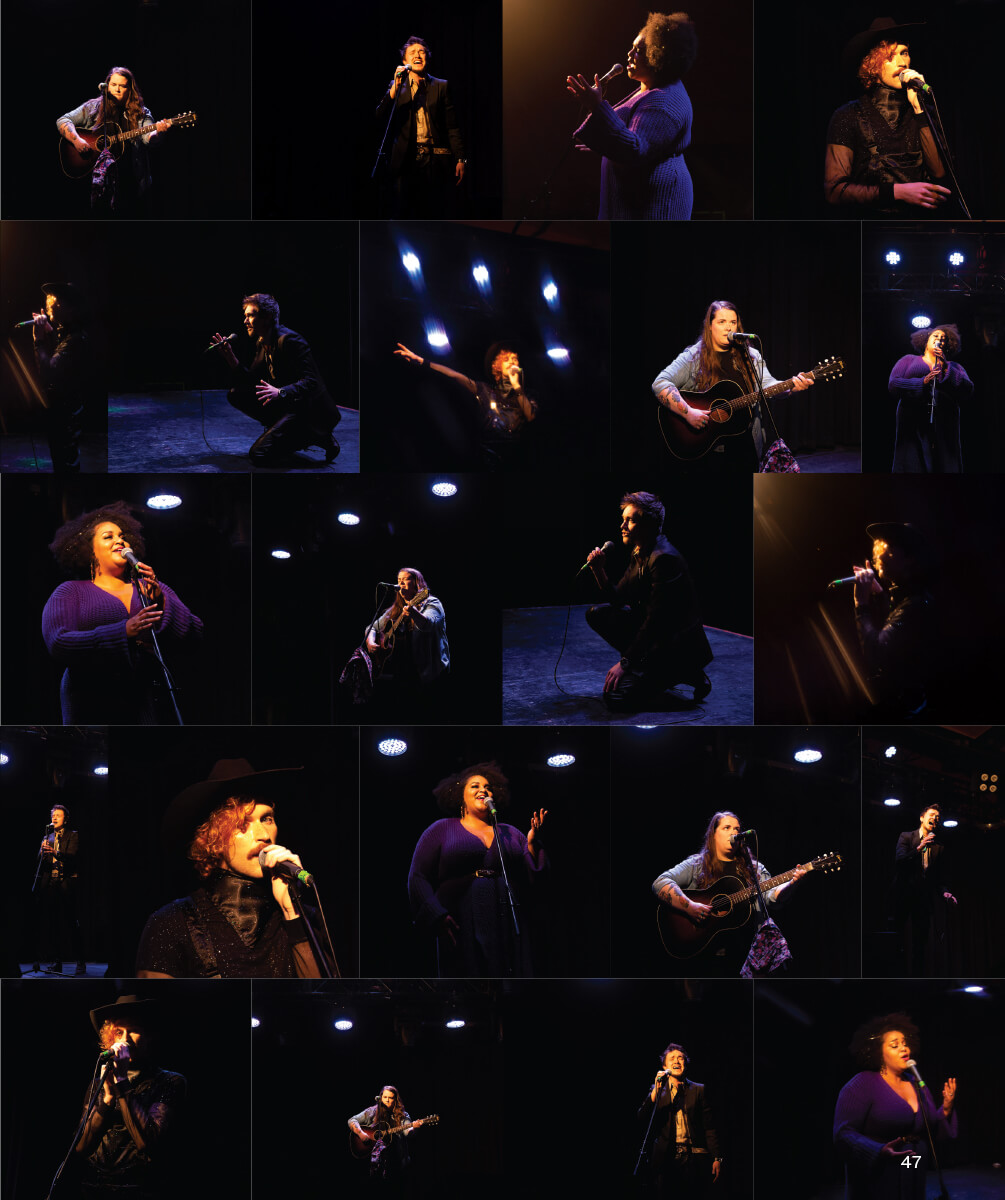Country music in Alberta flows like a river from crowded bars, small town rodeos and souped-up pickup trucks. And country music, like Alberta, came late to the diversity conversation.
In 1992, k.d. lang came out as a lesbian in the pages of The Advocate. She became a reluctant but polarizing flashpoint, bringing the international gaze to this western outpost with her 1993 win at the American Music Awards as Favorite Adult Contemporary New Artist, followed by the refusal of premier Ralph Klein’s Progressive Conservative government to congratulate her — ostensibly due to her vegetarian awareness campaign. Klein eventually did congratulate k.d. on her next win — the Grammys — but the PC’s clumsy gesture reminded queer Albertans that we couldn’t assume there’d be a place at the table for us, even if we did everything right and succeeded beyond anyone’s wildest dreams.
It’s easy to forget how these moments shook the foundational assumptions in which so much traditional music was steeped.
As the industry of country music finally faces its own maturity, it is at last making room for an element that has often been missing — diversity of voice. These queer Albertans are rising to answer that call.
These four conversations began with the same question: How did music find you? The answers — church, family — make it seem that their musical journeys aren’t really that queer after all.
The music found D’orjay in a small prairie town called Irma, Alberta, population 521.
“Music was ingrained in my family. My grandmother was a multi-instrumentalist with six brothers and sisters. They were raised going to church and learning how to sing seven-part harmonies.”
As a young girl, D’orjay wasn’t really a fan of church, but she loved the musical elements. In high school she dabbled in performance, but struggled with intense stagefright.
In her 20s, when she reconnected with her father’s side of the family in New York, and her stepmom, “a very Christian lady, always wanted me to come to church with her. That’s when I got into hanging out at a Black church, which is a whole different ‘gospel.’ The first time I felt it in my body was when I went to Black church. I was like, Hey wait a minute — this feels different somehow.”
Fear of performance compelled her to abandon her calling for a long time. She was nearly 30 and working north of Fort McMurray when she asked a co-worker — a trained classical guitarist — to teach her, thinking it could reconnect her with her creative side. After a few lessons he asked, “When am I going to hear you sing something?” Even when she did sing, she did it with her back to him so she didn’t have to watch his reaction. When she finished the song, she turned around slowly and saw that he was in tears.
That shifted everything. A couple of weeks later, she told him she didn’t know how to write songs. He gave her a guitar riff he had come up with and sent her off to try. She wrote her first song in half an hour.
“I feel like he was this angel that was put in my path that literally changed the entire direction of my life.”
In the jungle of Chile, as she was being used as an example for the other Shaman-in-training, her instructor asked her, “What’s going on for you right now?” D’orjay surprised herself by responding, “I think I want to be a fucking singer for a living. What am I doing here?” The instructor told her to go write a song about that. That song is “Soul Retrieval,” found on her debut album, New Kind of Outlaw.
D’orjay credits her family for making Alberta a safe place to be queer for her. There was never any doubt about being accepted. But as a BIPOC country artist, she recognizes that for the moment, she is one of one.
“I’m sad that I have to be someone who is speaking up for it, but I’ll tell you what: If it means that in this province or this region of the world, moving forward there are more BIPOC and LGBTQ2s+ folks that want to get into this genre of music, I’m down for it.”
For Edmonton artist Emmet Michael, whose new song, “God Shaped Hole,” was released earlier this year, church was where music began to get under his skin.
“I grew up in a very conservative Christian home and so my only introduction to music for a very long time was worship music.”
Michael and his siblings learned to harmonize while doing chores in the kitchen. He knew he really wanted to sing in church, and that opportunity arrived at the age of 12, around the same time he began to teach himself to play guitar. He attended Christian school from kindergarten to Grade 9, and even played in a worship band. But even surrounded by such a musical environment, part of him was holding back.
“I wasn’t able to fully immerse myself in that, because I also knew from a young age that I was queer, and that put a damper on the whole thing — I was singing worship songs and feeling like they weren’t for me. I had all these secret songs in a journal.”
Those many journals held the secrets that he would face later in his life, like leaving breadcrumbs for oneself to rediscover the truth later.
“I didn’t fully realize that I was transgender because I didn’t know that that existed, but I can go back in my journals and read things and I did know at a young age — I just didn’t have the words to name it.”
At some point, even the love of music was inhibited by the inner turmoil. He stopped writing as he wrestled with who he was, because “it’s hard to do music when you’re not emotionally open.”
It spiraled into addiction — as a way to bury the struggle with identity — and became a momentous turning point for Michael. After getting kicked out of school, and finally being arrested, he was given a choice.
“You’re given the option of going to treatment and having your record wiped clean, or you’ve got something on your record forever… and I went to treatment. I didn’t really want to at the time, but I also didn’t know what else to do and I knew I couldn’t keep living the way that I was.” During rehab, he finally spoke the words out loud to his counsellor. And then to his family over the phone. “Acceptance is life-altering for young queer people. I consider myself to be really blessed and I would say my mom and I are closer for it.”
In rehab, music returned to his life. “You take away the drugs and you have all these feelings that you don’t know what to do with — that’s when music really became a part of who I was, and expressing who I was in a way I never felt like I could before.”
The music found Robert Adam at a very young age in church, when he realized that he liked to express himself through singing and music. “I was in my mid-20s when I left the church for obvious reasons. They didn’t really want a homosexual leading worship anymore.”
Raised in Bonnyville, Adam stood out for the wrong reasons. “I had a vocal disorder that stopped my voice from changing until I was 21 years old. So I had an extremely high pitched, almost female voice. And, I obviously looked like a boy, so I kind of was the object of a lot of hate and criticism. Music definitely saved my life.”
Today, much of his identity is based on where he’s from. “And I think subconsciously that’s where the country music was coming from: Hearkening to my real identity as someone who really likes quiet spaces, who really enjoys hunting with dad and baking with mom, but also putting on a nice rhinestone outfit that’s very old school country and having the duality of being kind of an androgynous figure but also making a space for myself in rural spaces. That’s kind of how country music found me.”
Adam, who just released a new single, “Let’s Do This Again,” first revealed himself to the industry at the Alberta Country Music Awards in 2019, on the heels of his EP, Prairie Gold. “People were way nicer than I expected them to be,” but he has few illusions about his relative advantage. “I feel like I’m at a privilege point right now because white gays are so accepted now. There’s so many people who have it way worse: people of colour, trans people — they’re the ones we need to fight for.”
For artist Mariel Buckley, now based in Edmonton and known as the Singer of Sad Songs, the music was in her family home from the beginning. “I’ve got an older brother — that’s his job, he’s a songwriter as well, so I think it was pretty organic. We had lots of it in the house and when he started writing songs, I just thought, If he can do it, I want to do it. The rest is history.”
Buckley, whose recording of “Goodbye” with the Bros. Landreth has over 163,000 Spotify plays, didn’t really have to come out. “When I was about 12 I was like, ‘I think I like both’ to my mom. I think she quietly told my dad.” Perhaps because of this relaxed “coming out,” it took a while before she explored her own experience lyrically in a more literal manner. “I think there’s a nice little bit of anonymity that you can play with where you are giving every vulnerable part of yourself into a song, but people don’t always know what parts those are. I like being able to pick and choose.”
For Buckley, the lockdown shifted momentum that was gaining speed. In the middle of a six-month tour when the pandemic hit, she says it’s been nice to get back to creating, but touring is her favourite part, and it opened her eyes to the reality of life on the prairies.
“Honestly, all of my experiences have been great. I played a town in Saskatchewan called Cadillac that’s very small. Everyone that comes to those shows is rural. Farming families, usually. They were all super-kind people. That part surprises me a lot, to meet people in rural towns, because I go in with my defences up, and I am always pleasantly surprised.”
“As you grow up and as you understand what visibility means and what it means to relate to an artist that is like you — it’s very valuable. I think when I was younger I didn’t understand how powerful it would have been to have a role model 10 or 15 years ahead of me who was a bit more comfortable sharing that stuff. I think I’m just kind of easing into it.”
Shot on location at The Starlite Room
This article appears in the Summer 2021 issue of Edify



